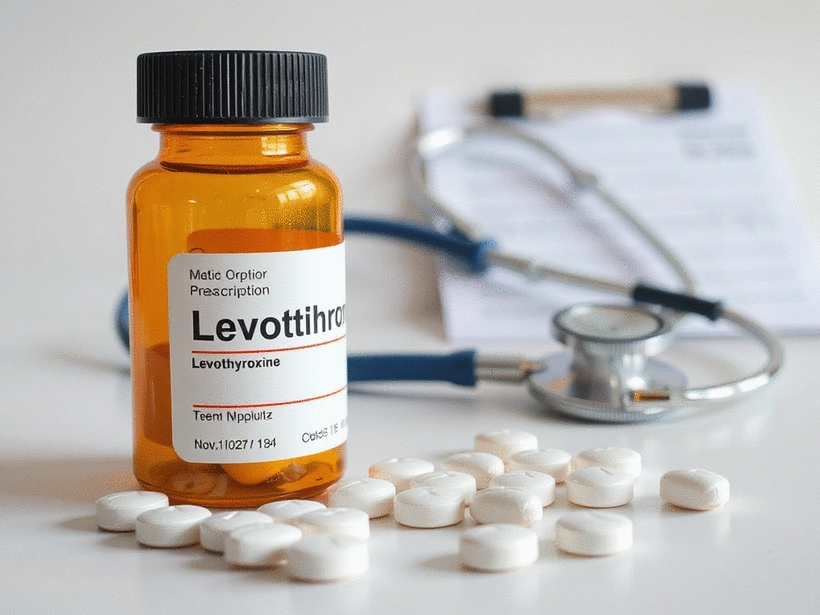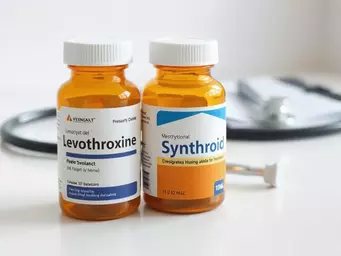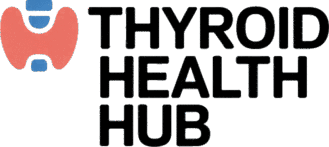Choosing Levothyroxine: Brands vs. Generics

Effective management of hypothyroidism starts with understanding your thyroid medication. With levothyroxine being the most common treatment, grasping its significance can empower you to take charge of your health. Are you ready to uncover key insights that can enhance your journey?
What You Will Learn
- Levothyroxine is crucial for restoring hormone levels in individuals with hypothyroidism.
- Regular monitoring of hormone levels through blood tests is essential for effective dosage adjustments.
- Understanding the symptoms of hypothyroidism can significantly improve the quality of life and prompt timely treatment.
- Both brand-name and generic options for levothyroxine exist, with personal preference and cost being important factors in decision-making.
- Proactive engagement with healthcare providers enhances treatment outcomes and supports better health management.
Hypothyroidism Management: Medication & Monitoring Essentials
Understanding the core components of managing hypothyroidism is key to effective treatment. Below, we highlight the crucial aspects of medication choices and ongoing monitoring, providing a clear overview of how to stay on track with your health.
Thyroid Medication Options
- ✓Levothyroxine: First-line synthetic T4 replacement.
- ✓Brands vs. Generics: Similar effectiveness, cost varies.
- ✓Dosage: Individualized, may require adjustment.
Monitoring & Adjustments
- ✓Regular Blood Tests: TSH levels and thyroid function.
- ✓Symptom Awareness: Track changes in fatigue, weight, mood.
- ✓Follow-Up: Schedule appointments as recommended.
Understanding Thyroid Medication for Hypothyroidism
When it comes to managing hypothyroidism, understanding the role of thyroid medication is crucial. For many, the first line of treatment is levothyroxine, a synthetic form of the thyroid hormone thyroxine (T4). This medication helps to restore hormone levels and alleviate symptoms such as fatigue, weight gain, and depression. If you've been diagnosed with hypothyroidism, learning about how levothyroxine works can empower you to take control of your health journey.
At Thyroid Health Hub, we believe that knowledge is power! Understanding how thyroid medications function can help you engage more effectively with your healthcare provider. Let's break down the essentials of levothyroxine and why it’s so pivotal in managing hypothyroidism.
The Role of Levothyroxine in Thyroid Hormone Replacement
Levothyroxine serves as a replacement for the hormones your thyroid gland is unable to produce. It works by increasing the levels of T4 in your body, which is essential for regulating your metabolism and overall energy levels. Adjusting the dosage may be necessary, as each individual may respond differently to the medication. The American Thyroid Association provides valuable patient thyroid information that further explains the nuances of T4 replacement and monitoring.
- Levothyroxine is typically taken once a day on an empty stomach.
- It may take a few weeks to notice improvements in your symptoms.
- Regular blood tests are important to monitor hormone levels and adjust dosages effectively.
It's important to stay in touch with your healthcare provider during this process, as they will guide you in finding the right dose. Have you discussed your symptoms and how you feel on your current medication? Open communication is key to effective management!

How Hypothyroidism Affects Your Body and Health
- Fatigue and low energy levels
- Weight gain or difficulty losing weight
- Dry skin and hair loss
- Constipation and digestive issues
Recognizing these symptoms early can help you seek treatment sooner, thereby improving your quality of life. Remember, you’re not alone in this journey! Understanding how hypothyroidism affects your body is a crucial step in managing your health.
Comparing Levothyroxine Brands and Generics
As you navigate your treatment options, it’s helpful to compare the different brands of levothyroxine available. Knowing the differences can empower you to make informed decisions about your medication.
Pro Tip
Did you know? Consistency in taking your levothyroxine at the same time each day can significantly improve its effectiveness. Consider setting a daily reminder to help establish this routine, ensuring you never miss a dose!

Wrapping Up Your Thyroid Medication Journey
Evaluating Your Options: Brand vs. Generic and Alternatives
When assessing your thyroid medication options, consider these factors:
- Cost: Generic medications are often more affordable than branded versions.
- Effectiveness: While both can be equally effective, individual responses may vary. Some individuals may experience different effects even if the active ingredient is the same, as discussed in studies on levothyroxine bioequivalence.
- Personal Preference: Some patients may prefer one brand over another based on previous experiences or recommendations.
It's essential to weigh the pros and cons of each option. As an endocrinologist, I often see patients who thrive on certain medications while others may need to experiment a bit to find the right fit. Don't hesitate to reach out to your healthcare provider to discuss your preferences and concerns!
Next Steps for Managing Hypothyroidism Effectively
Taking charge of your hypothyroidism means staying proactive about your treatment. Here are some actionable steps you can take:
- Regular Check-Ups: Schedule periodic visits with your healthcare provider to monitor your progress.
- Be Aware of Symptoms: Keep an eye on any changes in your body, such as fatigue, weight changes, or mood swings.
- Educate Yourself: Utilize resources like those from Thyroid Health Hub to understand your condition better.
Your health is a journey, and staying informed can lead to better choices along the way. Remember, you are not alone in this journey, and I'm here to help guide you through it!
Your Health Matters: Engaging with Healthcare Providers
How to Discuss Medication Choices with Your Doctor
Effective communication with your healthcare provider is key to managing your hypothyroidism. Here are some tips on how to broach the topic of your medication choices:
- Be Prepared: List your current medications and any concerns you have.
- Ask Questions: Don't hesitate to inquire about alternatives or what each medication entails.
- Express Your Preferences: Share your experiences and what you've learned about your condition.
By fostering open dialogue, you can work together with your doctor to find the best medication plan tailored specifically for you.
Monitoring Your Thyroid Health: Tests and Follow-Ups
Regular monitoring is vital for maintaining optimal thyroid health. Here’s what to keep in mind:
- Thyroid Function Tests: These tests help assess how well your thyroid is working and how your medication is affecting it.
- TSH Levels: Monitoring TSH levels is crucial as it gives insight into your hormone balance.
- Follow-Up Appointments: Schedule these as recommended by your healthcare provider to ensure consistent monitoring.
The Importance of Thyroid Function Tests and Monitoring TSH Levels
Thyroid function tests are essential for managing your condition effectively. Regular testing helps identify any necessary adjustments to your medication, allowing for optimal dosing that aligns with your body's needs. This ongoing monitoring can significantly improve your quality of life, ensuring that you feel your best.
Frequently Asked Questions About Hypothyroidism Medication
- What is the primary medication for hypothyroidism?
- The primary medication for hypothyroidism is levothyroxine, a synthetic form of the thyroid hormone thyroxine (T4).
- How does levothyroxine work?
- Levothyroxine replaces the thyroid hormones your body can't produce, restoring hormone levels and regulating metabolism to alleviate symptoms like fatigue and weight gain.
- How often should I monitor my thyroid hormone levels?
- Regular blood tests, particularly TSH levels, are essential for monitoring hormone levels and adjusting levothyroxine dosage effectively. Your doctor will recommend the appropriate frequency.
- What are the common symptoms of hypothyroidism?
- Common symptoms include fatigue, weight gain, dry skin, hair loss, constipation, and changes in mood like depression or anxiety.
- Is there a difference between brand-name and generic levothyroxine?
- Both brand-name and generic levothyroxine are generally effective, but individual responses can vary. Factors like cost and personal preference often influence the choice between them.
- Why is open communication with my healthcare provider important?
- Open communication with your doctor ensures that your medication plan is tailored to your specific needs and helps in effective management of your condition, including dosage adjustments and addressing concerns.
Sharing Knowledge and Resources
Encouraging Community Engagement and Support
At Thyroid Health Hub, we believe in the power of community. Engaging with others who share similar experiences can provide tremendous support. Have you considered joining a local or online support group?
- Connect with Others: Sharing your journey can help others feel less isolated.
- Gain Insights: Learning from others can provide new strategies for managing your health.
- Offer Support: Your experiences can be invaluable to someone else on a similar path.
Inviting Readers to Share Their Medication Stories
Your stories matter! At Thyroid Health Hub, we invite you to share your experiences with thyroid medication. These narratives can inspire others and offer hope in their journey. Let's create a platform where we empower one another by sharing knowledge!
Patient Education: Resources for Understanding Thyroid Health and Treatment
Knowledge is power! I encourage you to explore our resources, which include comprehensive guides and articles on thyroid health. Understanding your condition and treatment options can help you make informed decisions for a healthier life.
Recap of Key Points
Here is a quick recap of the important points discussed in the article:
- Levothyroxine is the primary medication for managing hypothyroidism, helping to restore hormone levels and alleviate symptoms.
- It's crucial to take levothyroxine on an empty stomach and to monitor hormone levels with regular blood tests.
- Recognizing symptoms like fatigue, weight gain, and mood changes can lead to earlier treatment and better health outcomes.
- Evaluate your medication options, including brand vs. generic, based on cost, effectiveness, and personal preference.
- Engaging with healthcare providers and maintaining open communication is vital for finding the right treatment plan.
- Regular check-ups and monitoring of thyroid function tests are essential for effective management of hypothyroidism.
- Participating in community support can provide valuable insights and encouragement in your health journey.









